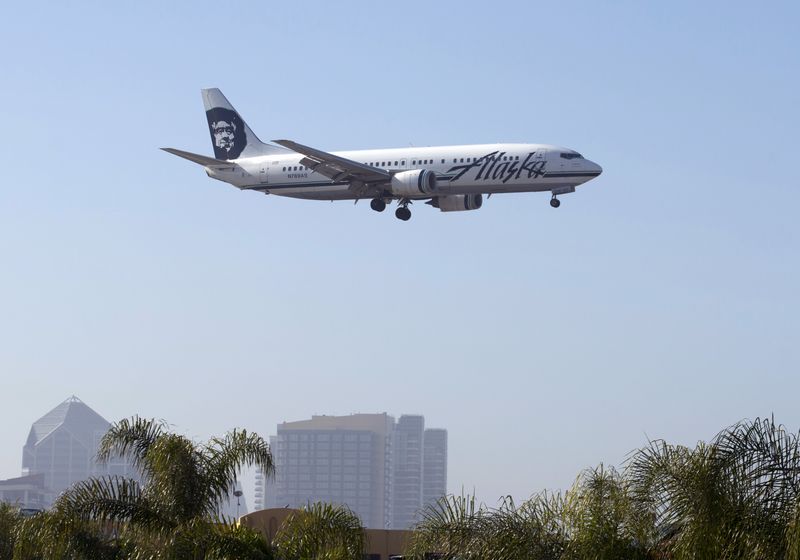By Rajesh Kumar Singh
CHICAGO (Reuters) - Pilots at Alaska Air (NYSE:ALK) Group Inc have voted to authorize a strike if agreement on a new employment contract cannot be reached, their union said on Wednesday.
The Air Line Pilots Association (ALPA), which represents over 3,000 pilots at the Seattle-based carrier, said 99% of those who cast their ballots backed strike-authorization.
Alaska pilots, however, cannot walk off the job until the National Mediation Board grants them permission. The board will first have to determine that both the parties are at an impasse and further bargaining would not be productive.
This lengthy and complex process makes it rather difficult for airline workers to strike. The last pilot strike at a U.S. passenger carrier was at Spirit Airlines (NYSE:SAVE) in 2010.
Alaska said the vote would not impact its customers and operation as its pilots are not on strike.
"We remain committed to reaching a deal to provide an updated contract that is good for Alaska's pilots," the company said.
The vote, however, highlights growing labor tension in the U.S. airline industry. Almost all the major carriers are facing protests from their pilots, who are demanding higher pay and improvements in "fatiguing" schedules in their new contracts.
United Airlines is the only major carrier that has reached an agreement with its pilots on new contract.
The protests come at a time when the industry is grappling with staffing shortages after letting go thousands of pilots at the height of the coronavirus pandemic.
Alaska itself is battling a high attrition rate. In the first quarter, 27 of its pilots resigned prior to their mandated retirement date.
ALPA says the company is on track to lose 180 pilots this year to other carriers, as its pilot contract remains below the rest of the industry.

Staffing woes are also taking a toll on Alaska's operations, forcing it to cancel 4% of its flights this month.
Alaska Air and its pilots have been negotiating a new contract since the summer of 2019. ALPA has said the company has not "meaningfully" addressed its concerns related to job security and schedule flexibility.